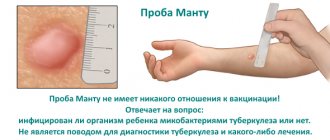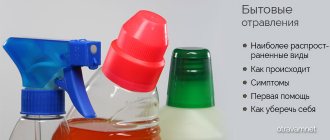Sore throat is considered a more severe type of tonsillitis, in which the tonsils become inflamed.
The causative agents of sore throat are coccal viruses, most often streptococci and staphylococci. In more rare cases, viral and fungal forms may be the cause.
loading…
A person immediately begins to understand that he has a sore throat, since the clinical picture always looks approximately the same - severe pain in the throat and the formation of a cloudy white coating around the tonsils.
However, the clinic is not limited to these signs only. In most cases, intoxication can occur, and quite serious.
General information about the disease
Intoxication with sore throat, as with ARVI and other diseases of the cold-infectious group, occurs quite often. Initially, the patient cannot swallow solid food normally, then liquid food. Because of this, the patient’s appetite decreases and, against the background of general weakness, the body has nowhere to get additional nutrition.
After this, a sharp rise in body temperature begins, as well as lethargy and direct poisoning of the body. Doctors say that sore throat itself is not such a terrible disease. But this is only taking into account that the victim will begin to receive appropriate treatment on time.
It is much more difficult to get rid of the consequences of a sore throat that, for some reason, has not been completely cured. This course of the disease is especially dangerous among young children, whose immunity is still weakened. What adds to the insidiousness of sore throat is that the consequences can make themselves felt after recovery occurs.
It is extremely dangerous to endure a sore throat “on your feet” when the patient has a mild stage of the disease. Working patients are rarely willing to adhere to bed rest for the required period, which ends in worsening the clinical picture.
During a sore throat and immediately after it, the kidneys and liver are especially affected. The patient can develop chronic tonsillitis, as well as various heart diseases and even rheumatism (joint damage). That is why you should listen to the doctor’s prescription and not postpone the visit until the condition worsens.
Most often, after an examination, the doctor prescribes tests, while at the same time trying to relieve an acute pain in the throat. To relieve inflammation and swelling, rinsing and inhalation are used. But without antibiotics, such aids will only temporarily alleviate the condition, relieving some acute symptoms.
Psychosomatic factor
Recently, there has been more and more talk about the connection between illness and a person’s thoughts. It has been proven that negative emotions provoke psychosomatic disorders. Silence about your feelings can lead to various speech impediments and the development of tonsillitis. Surely everyone has heard the expression “a lump in the throat.” This is exactly that feeling when you want to express your emotions, but there is no opportunity for this.
It is at such moments that numerous disorders develop in the body, suggesting that the basis of tonsillitis is psychosomatics.
Unexpressed grievances cause sore throat
To avoid illness, you should learn to express your thoughts and feelings. There is no need to swallow resentment and keep it inside. It's painful and unpleasant. Our body knows about this and expresses its disagreement with a sore throat.
Characteristic signs of poisoning
Each person experiences intoxication with angina individually, but there are a number of clinical signs that are suitable for most patients. The list looks like this:
- Fever that may last for about a week. In some cases, the patient also experiences chills.
- Painful sensations. In addition to the standard headache, a person experiences pain in the lumbar region and various muscle groups.
- General depression. A person is haunted by lethargy and weakness. He gets tired quickly no matter what he undertakes to do.
- Decreased appetite. If your throat hurts very badly, you may even experience a complete loss of appetite.
- Insomnia. Occurs due to constant muscle aches, as well as incessant sore throat.
- Vomit. Often this symptom is characteristic of children, as is inflammation of the meninges.
- Inflammation of the lymph nodes. This refers to regional nodes located in the area under the jaw.
- Impaired functioning of the cardiovascular system.
Tachycardia after a sore throat for some time is not uncommon. And during the course of the disease, the patient experiences pain near the heart. The patient's pulse is constantly elevated. This is explained by one of two reasons: high temperature, or the results of a toxic effect on the heart muscle. An ECG during such a period can demonstrate changes in the functioning of the heart.
Much less common is an enlarged liver and spleen, as well as the detection of red blood cells in the urine.
With the help of medications
The method of gargling helps to quickly and effectively remove pus from the tonsils, especially with the correct selection of medications, taking into account the sensitivity of the microflora in the pathological focus. A positive sign is the subsidence of pain after the first day of home rinsing.
Do you need advice from an experienced doctor? Get a doctor's consultation online. Ask your question right now.
Ask a free question
You can rinse your tonsils from purulent plugs at home using medications:
- a weak solution of potassium permanganate - 2-3 crystals per glass of warm water;
- salt-soda rinses - dissolve 1 teaspoon of fine salt and soda with the addition of 1-2 drops of iodine in warm water per 200-250 ml;
- Chlorophyllipt alcohol solution - 1 teaspoon per glass of water, helps remove pus from the tonsils, has a regenerating, immunostimulating, anti-inflammatory, antihypoxic effect;
- home gargling with Furacilin at the rate of 2-3 tablets for an adult, 1-2 tablets for a child;
- rinse the throat with diluted Chlorhexidine at a substance concentration of 0.05%, it helps to disinfect the focus of pus, softening the plugs;
- the drug Stopangin in combination with an oral antibiotic helps to quickly eliminate pus deposits, completely remove pain, and get rid of accompanying symptoms.
We suggest that you familiarize yourself with Treatment of chronic tonsillitis, symptoms, photo of the throat in an adult -
Before using home remedies for pus on the tonsils, you should first consult a doctor to avoid negative consequences.
Why does intoxication occur?
Most often, the basis for the development of the disease is B-hemolytic streptococcus of group A. Because of it, an infectious process begins that affects the lymphoid tissue of the pharynx. After streptococcus enters the stage of active reproduction, a person begins to suffer from inflammatory changes in the tonsils.
During the life of bacteria, their toxins are simultaneously released. These can be mucopeptides, as well as streptolysins.
After generating a large number of harmful bacteria, they, along with the produced poisons, begin to rapidly spread throughout the lymphatic system. This is how dangerous bacteria enter not only the lymph nodes, but also the tissues surrounding them, gradually infecting the entire body. In the end, the person experiences severe intoxication, which is expressed in the symptoms described above.
Particularly affects the heart muscle and blood vessels. This is due to the negative effects of streptolysin-O, which can destroy the heart. An additional burden is placed on the nervous system and organs of the digestive tract.
In the kidneys, the effects of toxins are most poorly tolerated by the glomerular basement membranes. The poison that streptococcus produces is dangerous in itself, causing intoxication. But in addition to tonsillitis, toxins also cause the formation of immune complexes circulating through the vessels. They cause damage to the renal glomeruli, destroying their wall. This contributes to impaired blood flow.
Some symptoms of poisoning make themselves felt immediately after the onset of the disease. But most of the consequences and signs of intoxication develop after the patient considers himself completely cured.
The risk group includes all those who have had a sore throat more than once and become easily ill each subsequent time. Also susceptible to the disease with subsequent intoxication are those who suffer from chronic tonsillitis with frequent exacerbations. Genetic predisposition is also an important factor here.
Routes of infection
Many people are concerned about the question, is tonsillitis contagious? First, let's find out how pathogenic microflora can penetrate the body. There are 3 options:
- airborne;
- through unwashed hands or contaminated food;
- in direct contact with the patient.
Most often, the infection spreads through the air, since coughing with tonsillitis is quite common. And in a closed room with a lot of people, this method will send every second person to sick leave in a matter of hours.
Airborne droplets are the most common route of infection spread
The contact variant is typical for herpes lesions. The pathogen can be transmitted through dishes, linen, personal belongings of the patient, and kisses.
At the same time, the likelihood of getting viral tonsillitis is much higher than bacterial. It is easily transported by all the routes considered and quickly penetrates the pharyngeal mucosa.
Is chronic tonsillitis contagious or not? In this case, we can say no, since it is only a complication of untreated pathologies. An allergic infection is also not capable of infecting. Thus, we conclude that the viral form of sore throat is the most contagious.
Early complications of angina
The period of early complications occurs in the first week. At this time, the patient may experience the following consequences for the body from poisoning:
- Peritonsillitis. Inflammation of the tissues near the tonsils, causing additional pain.
- Sinusitis. Inflammation in the sinuses near the nose.
- Otitis. Inflammatory process in the ear.
- Endocarditis. Inflammation of the heart valves.
- Swelling of the larynx.
- Retropharyngeal abscess. Melting of the lymph nodes, accompanied by pus. In particularly advanced cases, the fiber of the entire retropharyngeal space is also affected.
- Cervical phlegmon. An inflammatory process that affects the subcutaneous tissue.
- Sepsis. General infection.
- Meningitis. An inflammatory process affecting the meninges.
- Infectious-toxic shock.
Most often, such complications occur among children or adults whose immune system has failed. This could happen due to stress, a recent illness, an exacerbation of a chronic illness, or poor nutrition.
Treatment methods
If the sore throat is mild, there is no need for hospitalization; all you need to do is consult a doctor who will prescribe a course of therapy and tell you how to quickly and safely get rid of intoxication.
Treatment procedures include:
- Bed rest.
- Taking antibiotics: macrolides, penicillins, cephalosporins.
- Drink plenty of fluids
- Taking anti-inflammatory, pain-relieving drugs that will help get rid of fever will reduce pain. Take Nimesulide, Paracetamol, Ibuprofen.
Different types of rinses help a lot. You can brew an infusion of calendula, chamomile, you can also use a solution of Chlorhexidine, Furacilin, hydrogen peroxide. To prepare, take: 100 ml of water + a teaspoon of peroxide. In addition, you can use sprays, for example, Stopangin aerosol has proven itself to be excellent.
Antihistamines - Zodak, Suprastin - are of no small importance. In the case when the general condition worsens, fever appears, unbearable pain in the neck and throat appears, and the lymph nodes become severely inflamed. The patient cannot open his mouth, he develops weakness, chest pain, arrhythmia, severe headache, and a sharp drop in blood pressure. This cannot be avoided without urgent hospitalization.
In stationary conditions, infusion therapy is carried out, antibiotics are administered intramuscularly, intravenously. In severe cases, an urgent operation is necessary, during which the abscess is opened. The patient must be taken to intensive care, otherwise he may die.
Late complications of tonsillitis
The late period of complications can make itself felt a week after the disease. Some patients believe that by this time they have already managed to recover, but this is not entirely true.
Intoxication can manifest itself even after 10 days, or even two weeks. Most often it is expressed in:
- rheumatic fever;
- acute glomerulonephritis.
In the first case, we are talking about damage to the heart muscle, as well as joints. Fever is often accompanied by changes in the skin against the background of increased body temperature. If the valves are damaged, then the patient enters the stage of development of heart defects of varying degrees of complexity.
Acute glomerulonephritis can be detected using a urine test. The diagnostic result indicates an increased content of leukocytes and erythrocytes. Casts and protein also appear.
Patients suffering from chronic tonsillitis deserve special attention. In them, poisoning with streptococcal poisons almost always occurs regularly, since it remains in the tonsils, as well as in the oral cavity. You can even find streptococcus in teeth that are susceptible to caries or in the sinuses near the nose.
Chronic tonsillitis
Sluggish inflammation of the tonsils most often develops as a secondary infection. In the usual case, the chronic form is characterized by the same symptoms as the acute one, but they are much less pronounced.
Chronic tonsillitis is characterized by a sluggish course
There are three stages of chronic illness:
- compensated tonsillitis is characterized by a low response of the body to the source of inflammation. The immune system is not impaired, the disease does not worsen, and symptoms do not manifest themselves;
- the subcompensated form has low relapse. Repeated sore throats develop infrequently, but the body’s immunity is noticeably reduced, and signs of allergies are noted;
- decompensated tonsillitis manifests itself with constant bursts of sore throat, the development of complications, and intoxication of the body. Allergic symptoms worsen, damage to the cardiovascular and musculoskeletal systems is noted.
The decompensated form of tonsillitis requires long-term treatment, and in difficult cases the patient is recommended to undergo surgery.
Heart complications
One of the most common scenarios after a sore throat is heart complications. This happens because the body begins to produce antibodies during illness. They cause the body to suppress proteins that form connective tissue.
Rheumatism of the heart is called disorganization of connective tissues. The process leads to the formation of rheumatic nodules on the tissue, which begin to scar over time. For the same reason, the heart valves stop working stably, which guarantees a new diagnosis for the victim - heart disease.
In addition to cardiac rheumatism, another popular complication from the segment of cardiovascular diseases is called myocarditis. This inflammation quickly affects the heart muscle. In everyday life it is expressed in:
- rapid heartbeat;
- arrhythmias;
- pain in the heart area;
- swelling of the lower extremities;
- shortness of breath;
- swelling of veins in the neck area;
- cyanosis.
These symptoms appear approximately 3-3 weeks after the patient has suffered a sore throat “on his feet”, ignoring bed rest. It is the refusal of the doctor’s recommendations that often becomes the reason for a new round of an old disease or the emergence of several new ones.
Rheumatic complications after tonsillitis
In addition to cardiac rheumatism, sore throat can provoke the development of rheumatism of other connective tissues. Most often, the concept of rheumatism refers to diseases associated with the joints.
If a sore throat has not been properly treated, streptococci penetrate first into the bloodstream and then into other systems of the body. The characteristic features here are called:
- wandering type pain,
- swelling,
- swelling,
- redness,
- increased body temperature,
- fever.
Signs are especially pronounced in the large joints of the upper and lower extremities.
Such a complication can be cured only by selecting the correct complex therapy, which is prescribed by a doctor. Otherwise, the patient will experience wave-like joint damage. This means that at first some joints become inflamed, after a while the inflammation goes away and others begin to hurt. You can get rid of subsequent attacks with the help of physical therapy and medications.
Consequences of sore throat in children
Children are always the first at risk, especially those who suffer from concomitant diseases. Most often, preschool children develop a retropharyngeal abscess. This indicates that the baby is gradually growing an abscess in the spine and back of the pharynx. This is where the lymph nodes are located in children.
Because these lymph nodes almost always disappear by age six, there is no risk of this complication among adolescents and adults. But in children of primary preschool age, poorly treated sore throat can result in respiratory failure. In the worst case scenario, the child will suffer from suffocation.
To prevent the abscess from growing to large volumes that block the respiratory function, surgical intervention should be resorted to. During surgery, the doctor opens an abscess filled with pus.
Standard Treatments
The first point of the plan should be a trip to the local doctor. If the therapist believes that the patient is suffering from a mild form of sore throat, then he will not be hospitalized. If the disease is at an advanced stage, then treatment in a hospital cannot be avoided. You shouldn't resist him.
After choosing the type of treatment (outpatient or inpatient), doctors prescribe a therapeutic course. It necessarily includes compliance with bed rest, as well as the following aspects:
- prescribing drugs from the group of antibacterial agents according to individual tolerance;
- drinking plenty of fluids, including herbal infusions and teas;
- painkillers to reduce pain;
- anti-inflammatory drugs aimed at fighting fever;
- antihistamines.
Quite often you can hear that people take suprastin for sore throat. But the doctor does not always prescribe this particular antiallergic drug, focusing on the patient’s current condition.
Next, local treatment is performed, which includes rinsing with herbs with an anti-inflammatory effect. Inhalations, aerosols and sprays are also often prescribed.
Conservative therapy
Treatment of tonsillitis depends on the type of pathogen and the presence of concomitant pathologies. To combat bacterial sore throat, antibiotics are prescribed; the candidiasis type requires the use of antifungal drugs. Viral tonsillitis is treated with anti-inflammatory and antiviral drugs.
To eliminate pain in the tonsils, lozenges and lozenges are used, and the throat is gargled with solutions of antiseptics and medicinal herbs. The temperature is relieved with antipyretics. Medicines commonly used for tonsillitis are discussed in this article. You can read more about methods of treating tonsillitis here.
Prevention
To prevent intoxication it is necessary:
- Get rid of chronic infections - sinusitis, caries, pharyngitis, tonsillitis.
- Eat well.
- If a sore throat bothers you frequently, do not delay removing your tonsils.
- After you have suffered from the disease, you must undergo urine and blood tests and an ECG within 3 months.
- Boost your immunity by eating fruits, vegetables, and citrus fruits.
- Physiotherapeutic procedures for which Tonzillor is used.
So, intoxication with a sore throat can lead to serious consequences, so take urgent action!
Symptoms of chronic tonsillitis are a set of external manifestations of the disease in children and adults, which play an important role in detecting the disease and establishing a specific diagnosis. There are several types of chronic tonsillitis - viral, fungal, bacterial, and each of them has its own characteristics of the course.
Causes
The most common cause of acute tonsillitis is a bacterial infection. Most often it is hemolytic streptococcus type A, causing the so-called streptococcal sore throat. In more rare cases, tonsillitis is caused by Staphylococcus aureus, pneumococcus, or a viral or fungal infection.
In very rare cases, acute tonsillitis can be caused by rare infectious agents such as herpes, adenovirus or spirochete.
There are certain factors that provoke the development of acute tonsillitis. Most often these include:
- Chronic fatigue;
- Frequent stress;
- Hypothermia;
- Unbalanced diet;
- Avitaminosis;
- Bad habits, primarily smoking;
- Decreased immunity;
- Sudden change in temperature;
- Constant dampness.
Causes of sore throat or acute tonsillitis
All this leads to weakening of the body, provoking the penetration of pathogenic organisms. The specific type of tonsillitis is determined by its characteristic symptoms. In controversial cases, additional tests are prescribed, such as a bacteriological examination of a smear from the palatine tonsils, as well as an immunological blood test.
Regardless of the cause, at the first symptoms of acute tonsillitis you should seek help from a doctor as soon as possible.
Physiotherapy
Physiotherapy treatment methods are limited to one procedure - ultraviolet irradiation. Ultraviolet light will help stop the process at the beginning of the disease and speed up recovery. When exposed to rays, the following processes improve:
- the number of pathogens and the activity of toxins decreases;
- pain decreases, inflammation decreases;
- metabolism becomes more active;
- immunity is restored;
- Vitamin D is produced, which promotes tissue regeneration.
For patients with chronic sore throat, having a home device is beneficial. You need to intensively influence the tonsils 5-7 times. There are limitations to the chosen procedure. It is not recommended to conduct sessions at high temperatures, in severe stages of treatment with copious discharge of pus.
Fragility of blood vessels, frequent bleeding, and the presence of oncology are contraindications for the use of ultraviolet radiation. During the rehabilitation phase, other procedures can be used.
Infrared laser therapy (IR laser) will help improve blood circulation in the tonsils, remove adhesions, and restore tissue. Recommended course: 10-12 sessions.
Recommended video:
Magnetotherapy is the ability of magnetic fields to influence the body. This method helps strengthen the immune system in cells, remove the area of pathogenic bacteria, and quickly regenerate tonsil tissue. A course of treatment of 10-20 procedures is carried out according to indications daily.
Recovery period
In the acute period of the disease, strict bed rest is indicated. After recovery, doctors do not recommend immediately sending the child to kindergarten or school. The period of complete restoration of immunity after an infection lasts 2–3 weeks. The tonsils and cervical lymph nodes may remain enlarged for a month, which is within normal limits. At this time, walks in the fresh air without hypothermia are recommended. A fermented milk diet will be useful, as it will help restore normal microflora after taking antibiotics. Emotional and physical overload is contraindicated.










